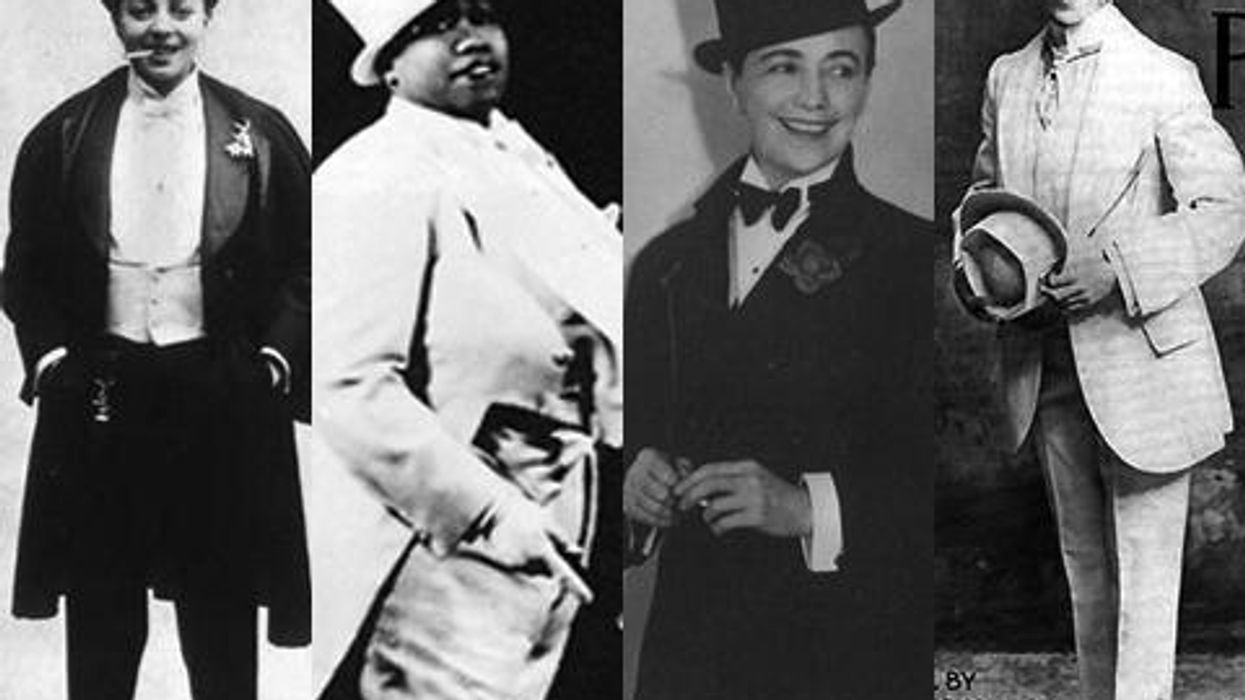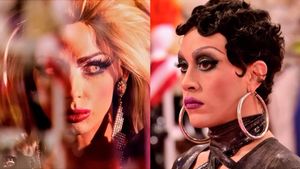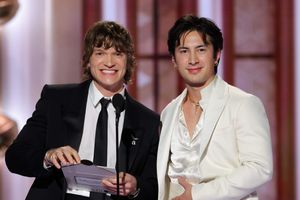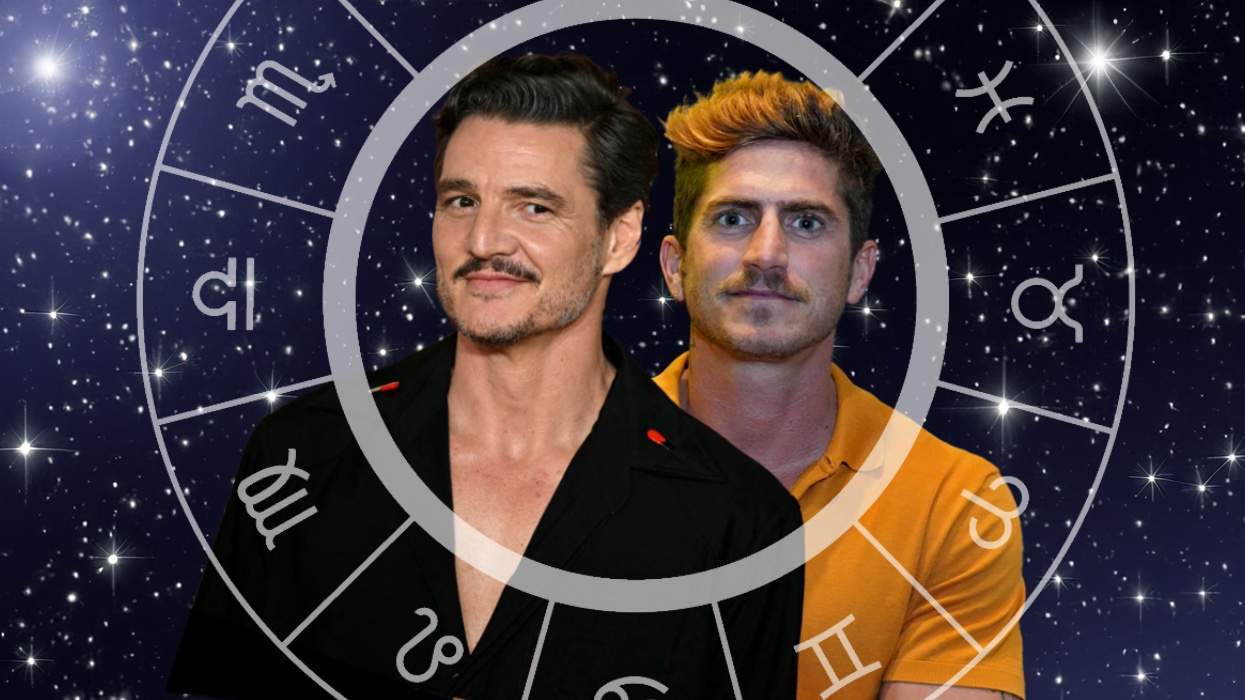Hetty King (1883–1972) was born as Winifred Emms. She performed in the English Music Hall circuit with her father and eventually sharpened her own act as a male impersonator with a career that spanned both world wars. King often dressed as a dandy or a soldier and sandy some of the less risque songs that soldiers sang in the trenches.
Gladys Bentley (1907–1960) A black, lesbian, cross-dressing performer, Bently was a talented if stylized pianist and singer. Her career took off when she was only 16 when she landed a job performing at Harry Hansberry's Clam House on 133rd Street, one of New York City's most notorious gay speakeasies. She headlined in the early thirties at Harlem's Ubangi Club, where she was backed up by a chorus line of drag queens. Bently growled out her salty lyrics and flirted with the crowd. After the decline of the speakeasies, she relocated to California where she was billed as "America's Greatest Sepia Piano Player". But as America became more conservative during the McCarthy era, Bently tried to tone down her personal act, marrying a man, and claiming to have had an operation which "helped her change her life."
Ella Shields (1879 – 1952) was a music hall singer in the late 1800s when her big moment came in the form of a male duo act with one sick partner. She stepped into his trousers at the last minute and the crowd was smitten. She married song writer William Hargreaves who in 1915 wrote for her "Burlington Bertie from Bow", a comic ditty about a penniless Londoner who affects the manner of a well-heeled gentleman.
‘With wavy auburn hair and dressed as a young man in evening dress, nervously fingering his white tie, she made a very charming and gay figure...and though she adopted the tattered clothes and worn top hat of the traditional “broken down swell” act she did so with a difference, making of what might have been ordinary broad comedy something delicate and, in its way, almost moving.’ — The Times in London, 1952, from Shields's obituary
The persona of Bertie haunted the rest of her life and she was known as Bertie as much as Ella. She and Hargreaves had separated in 1916 and they divorced in 1923.
Vesta Tilley (1864–1952) was born Matilda Alice Powles, and became a English music hall star under the watchful eye of her father, known as Harry Ball (!). She performed her first male role at 6, and soon after came to prefer doing male impersonation on stage for most of her career.
She was eventually successful enough that her salary supported her entire family. Her specialty was not only impersonating men, but giving her characters a slightly mocking edge that parodied the worst aspects of men behaving badly. She was wildly popular among women as well, who viewed her as a symbol of independence. Small wonder that these women preferred to perform as men as it gave them a freedom and a power that did not have as actresses.
In 1890 she married Walter de Frece, a music-hall entrepreneur and the son of a theatre owner who went on to found a chain of theaters that naturally featured his wife. When her husband was running for MP, she felt is appropriate to retire from the stage. But Vesta's farewell tour took a year to complete. All proceeds were given to a local children's charity in the city where the performances took place.































































































 Cindy Ord/Getty Images
Cindy Ord/Getty Images























